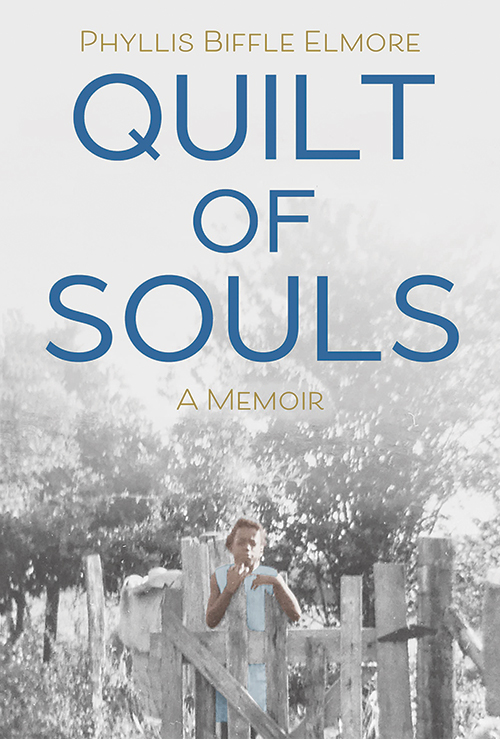
Quilt of Souls: A Memoir
Reviewed by Katie Green
August 1, 2023
By Phyllis Biffle Elmore. Imagine, 2022. 304 pages. $24.99/hardcover; $7.99/eBook.
Quilt of Souls is a collection of family stories that the author’s grandmother told her as she created quilts using fabric from the clothing of those who had passed on. When family and friends pass on, their clothing and their stories are sewed together to become part of a treasured quilt that will comfort those left behind.
Quilting is a Black tradition; scraps of fabric were used to make bed coverings during slavery. Some were hung outside to mark the Underground Railroad. Today art museums are featuring exhibits of quilts made by Black people to bring attention to racial injustice and promote social change. These quilts are magnificent works of art. Lula Young Horn (the author’s grandmother) repeatedly told family stories as she quilted, so the people would not be forgotten. Phyllis Biffle Elmore has preserved these family stories in her writing.
Elmore’s colorful language and use of metaphors are a joy. She beautifully captures dialect, vocabulary, and colloquial phrases in written language. I especially appreciate the metrical structure and the collapsing of words. For example, the word cousin is pronounced “cuttin,” and colored (meaning Black) is “cullud.” Wisdom and tradition are packed into the stories. Grandma tells the worried child, “It’s gone be alright, chile, you jus’ wait an’ see. Trouble don’ las’ always.” This is not a book that I, a storyteller, could skim, because language is culture.
Quilt of Souls begins with the author at age four being taken from her family in Detroit, Mich., by strangers who drove her to Alabama where she lived with her grandparents for nine years. This was the experience of many Black children whose parents left the South during the Great Migration and found that large families were challenging to care for in urban settings. The youngest child in many families could be sent “home” where grandparents could better care for them.
The author writes that Quilt of Souls is a tribute to what she has learned about slavery and the resulting African American servitude in the United States. The book is also a tribute to the strong women who are not recorded in history. The stories give the reader a feeling of enormous respect for the determination, strength, and wisdom of Black people. They provide an inside route to understanding oppression.
I spent my early childhood in the South, and I remember signs designating White and Colored water fountains. Elmore describes two water fountains near the courthouse in Livingston, Ala. One is tall and pretty with a sign above it: “White.” The other (not described) has a sign: “Colored.” Elmore says that her Grandpa warned her many times not to drink from the “Colored” fountain. He always brought two large mason jars of water with him when he went to town, and told her, “If ya wants water, you drank till you bust from dis jar rat yere.”
Intolerable acts of racism are described by Lula Horn, Elmore’s grandmother. These stories are followed with instructions to the young child. Young Phyllis describes her anger and wish for revenge. Grandmother’s words of wisdom to the child often reflect a nonviolent response to wishes for revenge. “Now, chile, I don’ ever want to see you hol’ onto that, you hear me? . . . Grandma wants you to let that go right now; throw it right down there in that dirt and let the Lord carry it ’way from you.” Grandma tells a story about an abusive sheriff, saying, “That sheriff one sorry fella, but Lawd, did I pray for him.”
Quilt of Souls is an enjoyable and informative read for Friends. I have facilitated numerous workshops on racism, diversity, White privilege, and related issues. I have attended and presented workshops on the topic for teachers, Quakers, and other spiritual communities. I have worked with groups and have close friends of many colors and ethnic groups. I have had the privilege of listening to many of their stories. I believed I had done my homework. Quilt of Souls greatly added to my understanding. This book is an essential addition to any reading list.
Katie Green is a member of Clearwater Meeting in Dunedin, Fla., where she lives. Previously from Massachusetts, active with Worcester (Mass.) Meeting, Katie continues to attend New England Yearly Meeting annual sessions. Katie is a storyteller. She believes that stories can and do change the world.



Comments on Friendsjournal.org may be used in the Forum of the print magazine and may be edited for length and clarity.